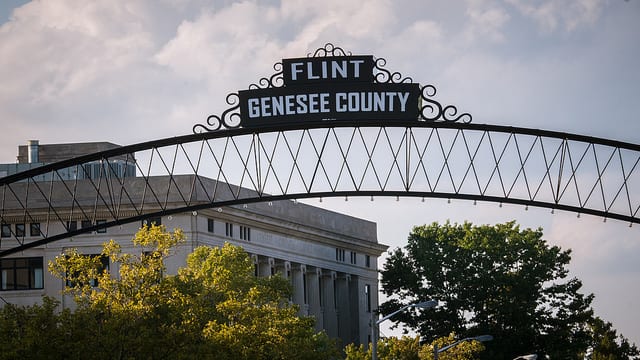By keeping quiet, the Supreme Court is giving voice to the victims of Flint’s water crisis.
The Supreme Court will allow victims of the Flint Water Crisis to continue suing city and state officials.
National Public Radio reports that, for years, Flint city officials—alongside state regulators—have argued “qualified immunity,” claiming they can’t be sued for whichever role they may have played in the water crisis. However, their position was challenged by lower courts, which ruled in favor of victims.
While the Supreme Court declined to accept either of two cases relating to lead-contaminated water, the justices’ decision to remain silent will have a significant impact. By keeping quiet, the panel has effectively allowed the lower courts’ rulings to stand.

Attorney Michael Pitt, co-lead counsel in a class action lawsuit, told Michigan Radio he’s pleased with the Supreme Court’s decision.
“It’s time for the people of Flint to start feeling like they are going to get their day in court,” Pitt said. “This just moves the entire process closer to that day.”
Pitt—who’s representing thousands of Flint residents demanding damages—said his clients has so far “been denied justice.”
Fox News notes that an estimated 25,000 people are participating in class action lawsuits against city and state officials. Collectively, they claim the government was responsible for engineering the crisis.
Under former Michigan Gov. Rick Snyder, Flint’s emergency financial manager unilaterally decided to switch the city’s drinking water supply from Lake Huron to the Flint River. While the change was supposed to be a temporary cost-saving measure, water activists and medical professionals noticed adverse health effects within the community, especially among children. When third-party investigators confirmed elevated levels of lead in Flint’s drinking water, the state vigorously denied there was a problem.
It took a year and a half for city and state officials to admit that Flint’s drinking water didn’t meet federal standards. Only then did Flint switch back to its Detroit pipeline.
Since then, activists and attorneys have maintained that Snyder—along with many of his administration officials—were complicit in a clear cover-up. By April last year, says Fox News, U.S. District Judge Judith Levy reinserted Snyder as a defendant.
Levy said that Snyder “was indifferent because instead of mitigating the risk of harm caused by the contaminated water, he covered it up.”
“In private,” Levy continued, “he worried about the need to return Flint to [Detroit’s water system] and the political implications of the crisis. But in public, he denied all knowledge, despite being aware of the developing crisis. As a result, plaintiffs were lured into a false sense of security.”
Sources
Former Gov. Rick Snyder is again a defendant in Flint water class action lawsuit
Supreme Court Allows Flint Water Lawsuits To Move Forward, Officials Not ‘Immune’
Supreme Court allows lawsuit against Flint city officials to advance


Join the conversation!